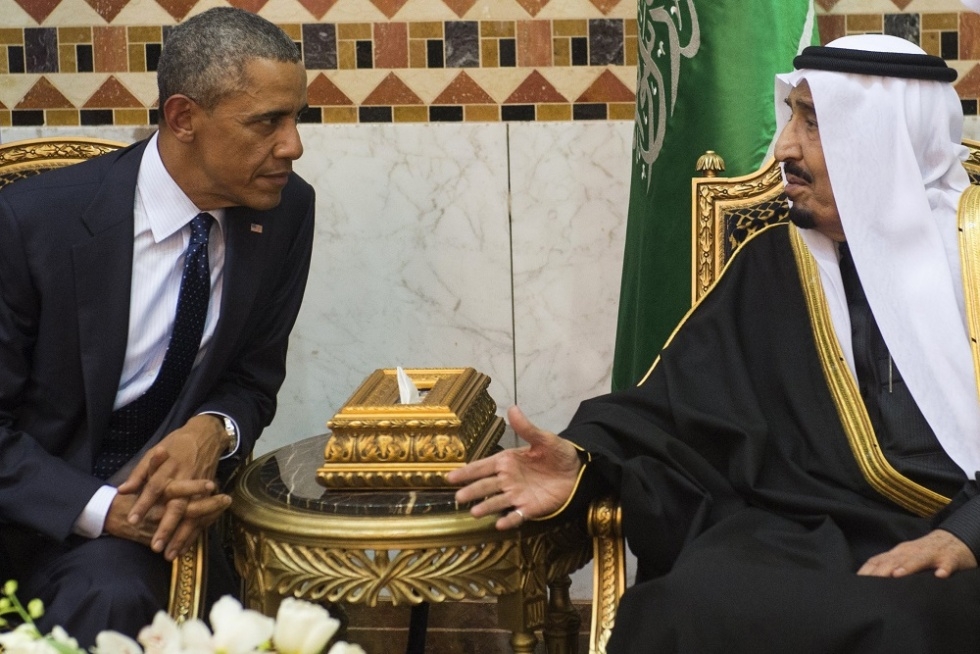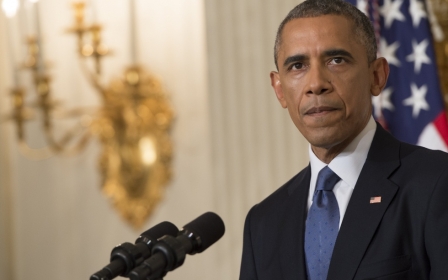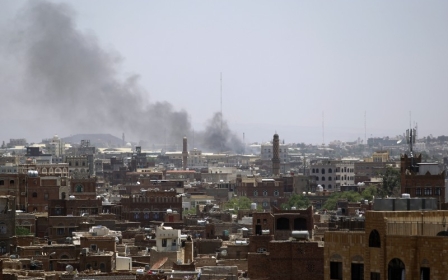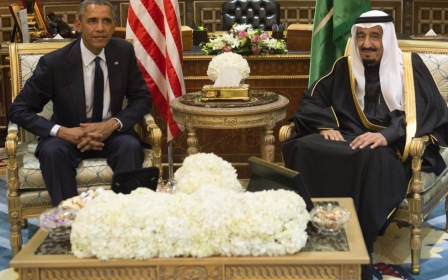GCC leaders gather in Washington despite high-level cancellations

GCC leaders will begin their two-day meet with US President Barack Obama today amidst a flutter of controversy and a string of last-minute cancellations.
Obama invited Saudi Arabia’s new king Salman along with five other Gulf rulers to the White House on Wednesday, with a follow up day of talks also scheduled at the Presidential retreat of Camp David on Thursday.
However, Salman pulled out of the visit earlier this week, with the Kuwaiti and Qatari rulers the only Gulf heads of state now expected to attend the summit.
Analysts have widely blamed Salman’s cancellation on lingering frustrations over the Iran nuclear deal, which has been a cornerstone of Obama’s foreign policy and aims to see limitations imposed on Iran’s nuclear programme in exchange for the easing of sanctions.
While Riyadh said that it hopes the framework agreement penned in April would “strengthen the stability and security of the region,” Abdelkhaleq Abdallah, an analyst from the United Arab Emirates insists that the rift between Obama and Salman on the issue remains wide.
The failure of Gulf leaders to attend indicates "a lack of consideration, a disagreement and a lack of respect for President Barack Obama," Abdallah told AFP.
"The differences of opinion seem profound" he added.
The White House denied allegations of a rift on Monday, saying that the two countries continued to share a common "interest and commitment to the stability and prosperity of the region”. Saudi Arabia has also said that the cancellation was due to the start of the five-day ceasefire in Yemen where a Saudi-led coalition has been carrying out airstrikes against Houthi militias and supporters of former president Ali Abdullah Saleh since 26 March.
In place of Salman, Saudi Arabia is dispatching two powerful figures, Crown Prince and Interior Minister Mohammed bin Nayef and Salman's son, Deputy Crown Prince and Defence Minister Mohammed bin Salman.
"You don't usually send two of the most senior people you have to deliver a snub," said Anthony Cordesman, of the Center for Strategic and International Studies in Washington.
But by "downgrading" the delegation, the kingdom was "attempting to put pressure on the US," he said.
"It's a sign that Saudi Arabia would like to see a clearer US strategic commitment to the defence of the Gulf, and clearer signs about how the US intends to deal with Iran."
Critics have also suggested that the GCC capitals are concerned that Obama is focusing too much on the Iran nuclear deal and is not taking allegations of alleged Iranian interference in the region or its regional ambitions seriously – fears Obama is likely to try and dispel during the two-day talks.
Aside from Iran, concerns about the Islamic State are also expected to feature prominently at the talks.
US Secretary of State John Kerry on Wednesday said NATO member states wanted to see a clearer defence agreement with Gulf Arab states to fight the group and its ideology.
"I think all of the member states feel very strongly that defining a... clearer defence arrangement between the GCC and other friendly countries and the United States is going to be critical to helping them push back against terrorism," he said at a meeting of NATO foreign ministers in Turkey.
Such an arrangement "would also help fight against some other activities that take place in that region that are unsettling to all of those countries," he added, without specifying further.
According to David Ignatius of the Washington Post, “US officials hope the meetings will bring a common front against extremism in the region, in both its radical Shiite and Sunni versions”. However, Ignatius also warned that the US was feeling constrained in the current climate with a high-level US official warning that: “You can fight ISIS, or you can fight in Yemen, but not both.”
Other issues, such as new security commitments by both sides, and further GCC defence integration, will also be on the agenda.
“We’ll both be discussing US policies and our approaches, but also GCC policies and approaches, and how we can align those efforts on areas of mutual interest,” said Ben Rhodes, the White House deputy national security adviser for strategic communications.
“I would certainly anticipate that there will be some form of a statement emerging from the summit that reflects the common positions of the United States and the GCC on a range of issues.”
“We very much feel that we have the right group of people around the table to have a very substantive discussion,” Rhodes added.
New MEE newsletter: Jerusalem Dispatch
Sign up to get the latest insights and analysis on Israel-Palestine, alongside Turkey Unpacked and other MEE newsletters
Middle East Eye delivers independent and unrivalled coverage and analysis of the Middle East, North Africa and beyond. To learn more about republishing this content and the associated fees, please fill out this form. More about MEE can be found here.




